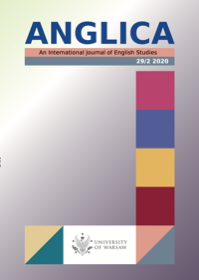Relativiser Alternation and Relative Clause Complexity
Relativiser Alternation and Relative Clause Complexity
Insights from Nigerian and American Varieties
Author(s): Mayowa AkinlotanSubject(s): Language and Literature Studies
Published by: Instytut Anglistyki Uniwersytetu Warszawskiego
Keywords: relativiser; relative clause; structural complexity; relativiser posterior syntactic form; Nigerian English; new Englishes
Summary/Abstract: Idiosyncrasies and peculiarities distinguishing new Englishes from the established ones are often identified and measured by examining the extent to which structural choices and patterns vary across the board. The competition between relativisers wh- and that in the construction of relative clause, which itself is a structurally complex-versus-simple construction site, allows for showing the extent to which choice of a relativiser relates to the construction of a complex or simple relative clause, given different factors. On the other hand, such investigation can also shed some light on the extent to which structural complexity characterises new varieties of English. Relying on 628 relative clauses drawn from written academic corpus, the study shows that WH-relativiser is preferred to THAT-relativ- iser by the Nigerian speakers, and vice versa by the American speakers. It is also found that WH-relative clause is more likely to be complex-structured while THAT-relative clause is more likely to be simple-structured. Among eight factors tested for independent effects, the factors representing relativiser posterior syntactic form, syntactic function, and syntactic positioning of the relative clause appeared to be strong predictors of where we might (not) find a certain relativiser and whether a complex or simple relative clause will emerge.
Journal: ANGLICA - An International Journal of English Studies
- Issue Year: 29/2020
- Issue No: 2
- Page Range: 91-113
- Page Count: 23
- Language: English

